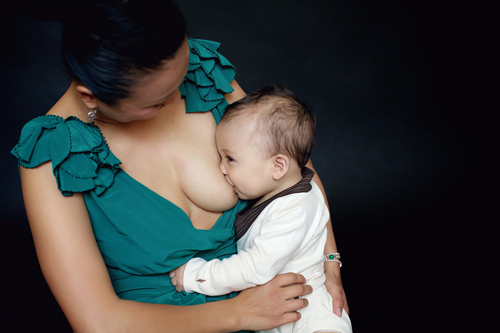The mothers of the European Union Chamber of Commerce in China’s Beijing office now have a place of their own. The Chamber launched its Mothers’ Room earlier in April, to provide private, dedicated facilities for staff to breastfeed or to prepare breast milk for later use and refrigerated storage.
The idea came from a variety of sources, including the European Chamber’s Pediatric Nutrition Desk (PND) and staff members, said Adam Dunnett, Secretary General of the European Chamber, in a telephone interview. Twenty percent or more of the Chamber’s female employees in Beijing became pregnant or gave birth during 2013, spurring both the organization’s desire and need for the space.
“We have a very strong baby and family culture here in the Chamber office, and we are always asking what we can do for Chamber staff,” Dunnett said. He added that women without access to dedicated spaces find themselves having to handle breastfeeding in places like public lavatories, which, when preparing milk for later use, will not necessarily meet desired hygiene levels.
The move is part of a trend supported by the Women Workers Committee of the Beijing Federation of Trade Unions to build 1,000 more such rooms over the next three years.
Breast milk is the best source of nutrition for newborn babies and infants, the European Chamber’s Pediatric Nutrition Desk said. Beijing currently has 3.25 million women of childbearing age, but only 7 percent of nursing mothers have dedicated maternal space, according to a report by Women of China. With the relaxation of the one-child policy expected to spur a new baby boom, there will also be an increasing need for such facilities, the report said, both at workplaces and public areas like airports and railway stations.
UNICEF is also in on the action, having launched its China-only “10m2 of Love” app for the iPhone for mothers to conveniently locate breastfeeding spaces. The UN organization calls it “a digital breastfeeding advocacy campaign that aims to locate, register, certify and publicize breastfeeding rooms, both for employees during work hours and for patrons and customers in public buildings and stores.”
Dunnett said that their Mommy Room is not only available to staff and European Chamber member company employees, but also to employees in the Kempinski Office Building where they are located, and users of the UNICEF app.
Does your employer offer a Mommy Room? Why or why not? Let us know in the Comments section below.
Photo courtesy of Le Leche League




